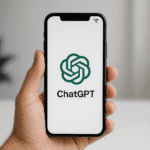Introduction: The Power of a Mother’s Voice
Science is now proving what every parent instinctively knows—a mother’s voice is powerful.
A new study led by Stanford Medicine, published in Frontiers in Human Neuroscience, has revealed that hearing a mother’s voice can accelerate brain development in premature babies.
For doctors and healthcare professionals at The Doctorpreneur Academy, this research highlights a transformative approach in neonatal care, demonstrating how even a simple act — such as a mother reading to her baby—can have profound neurological benefits.
1. The Study That Spoke Volumes
Premature babies, born more than eight weeks early, often spend weeks in hospitals, where they miss out on the sounds they would normally hear in the womb—including their mother’s speech.
To bridge this gap, researchers at Stanford Medicine designed a unique intervention: they played recordings of mothers reading to their hospitalized preemies for two hours and forty minutes daily over several weeks.
When compared to a control group that did not receive these recordings, MRI scans revealed something remarkable—babies who heard their mother’s voice had more mature language pathways in the brain.
2. A Milestone in Neonatal Neuroscience
The study offers the first causal evidence that exposure to maternal speech contributes to early brain development.
Specifically, the left arcuate fasciculus—a key white matter tract responsible for processing and understanding language—showed significant advancement in babies who heard their mother’s voice.
The study’s lead author noted,
“This is a potentially transformative way of thinking about neonatal care and language development in preterm infants.”
Even though the exposure lasted only a few weeks, the brain changes were measurable—a sign that early sensory experiences leave a lasting imprint.
3. The Science Behind the Sound
Hearing begins around 24 weeks of gestation, when fetuses start responding to voices and rhythms. By late pregnancy, the mother’s voice becomes the most familiar sound, and newborns instinctively recognize it.
In preemies, however, this developmental experience is interrupted. The hospital environment—filled with machine beeps and clinical noises—lacks the warmth of a human voice.
By introducing recorded maternal speech, the researchers recreated a part of the womb experience, allowing the baby’s brain to continue developing naturally.
4. Small Interventions, Big Impact
Despite being a short-term intervention, the results were impressive.
The babies who listened to their mothers’ voices showed stronger and more organized brain connections related to language and communication.
A neonatologist and co-author shared,
“It’s powerful that something fairly small seems to make a big difference.”
The finding opens new possibilities for low-cost, high-impact neonatal interventions—especially in developing countries where advanced therapies may not be accessible.
5. Emotional Reassurance for Parents
For many parents of premature infants, prolonged hospital stays are emotionally draining. Feelings of helplessness and guilt are common, especially when they can’t be physically present all the time.
This study brings reassurance and empowerment—even if parents can’t be there, their recorded voice can comfort and nurture their baby’s brain.
6. Implications for Doctors and Healthcare Systems
For neonatal care providers, this research marks a turning point in how sound environments are managed in hospitals.
Simple, structured programs that incorporate recorded parental voices could become a standard part of NICU protocols to support neurodevelopment.
At The Doctorpreneur Academy, several pediatricians and neonatologists are already exploring digital voice programs and parent-guided audio therapies as part of early stimulation projects for preterm babies.
Such innovations align perfectly with the academy’s mission—merging compassion, science, and technology to redefine patient care.
7. Looking Ahead: Nurturing Brains with Love and Science
The research team is now expanding the study to include babies with medical complications and exploring how different types of sounds—speech, music, or lullabies—influence neural growth.
This blend of neuroscience and parental connection has the potential to revolutionize early developmental care, offering a non-invasive, emotionally charged, and deeply human approach to healing.
For doctors, it’s a reminder that care isn’t always about machines or medicine—sometimes, it’s about something as simple as a mother’s voice.
Conclusion: The Sound of Healing
This study underscores a profound truth—the human voice, especially a mother’s, is one of the most powerful tools in medicine.
It bridges the emotional and biological, shaping not only how a child connects to language but also how they connect to the world.
As doctorpreneurs, let’s continue to amplify such innovations—where science meets empathy and technology enhances human touch.
👉 To register for our next masterclass, please click here: https://linktr.ee/docpreneur




